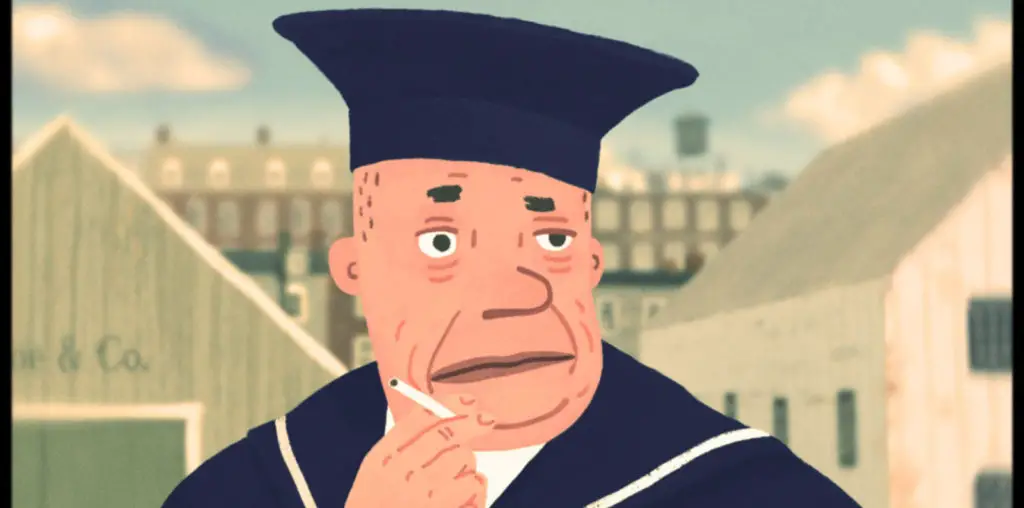
This strange and truly fascinating film is set in alternative post-World War II environment where Japan is divided (Korea-style) in half: a Southern half occupied by the United States and a northern half controlled by something called the Japanese Union. A quasi-Cold War atmosphere reigns here, capped by a mysterious tower looming on the northern part of the border.
Three teenagers in the south, clearly blessed with uncommon aerospace technological skills, make a vow to build their own airplane with the plan of flying across the border to explore the tower. When one of the youths becomes ill and lapses into a coma, the other two seek to fulfill the promise and fly with their comatose friend off on a perilous mission.
Makoto Shinkai’s extraordinary production generated comparisons to Hayao Miyazaki’s work within anime circles, yet Shinkai is clearly a distinctive cinematic talent who is capable of creating works of challenging imagination and deep visual beauty. The depth and scope of the animation in “The Place Promised in Our Early Days” is an extraordinary achievement. No detail is too small – from the mist rising from the wave to the gentle flow of hair blown by the wind to the reflection of light off a window, the visual spectrum presented here is astonishing. Nothing escapes Shinkai’s attention, and the film truly feels three-dimensional for this attention to the smallest aspects of the scene.
Equally fascinating is the richness of the story. In too much anime, the stories are basically one-dimensional excuses for slam-bang and knockabout. But here, a lot of thought went into the process and it shows. From the wildly off-beat concept to the genuinely three-dimensional characterizations of the main protagonists to the completely unexpected twists and turns of the plot, this feature is eons removed from the grueling repetition and absence of originality which has been burdening anime for too long.
“The Place Promised in Our Early Days” will appeal to anyone who cherishes intelligent cinema, and its arrival should signal Shinkai’s position not only as a new master of anime, but as a new force in global cinema.

